Electric vehicles have become remarkably accessible, with several models now priced under $35,000 after federal incentives. The 2025 Nissan Leaf starts below $30,000, while the Chevrolet Equinox EV costs $33,600 post-credits and delivers an impressive 319-mile range. Used options present even more value, with pre-owned Tesla Model 3s available around $25,000 and Chevrolet Bolts under $20,000. Beyond purchase price, EVs offer significant long-term savings through reduced fuel and maintenance costs, making the shift to electric increasingly compelling.

As the automotive industry accelerates toward an electric future, affordable electric vehicles (EVs) are emerging as viable alternatives to traditional gasoline-powered cars. The market now offers several budget-friendly options that combine practicality with innovative technology, making the changeover to electric mobility more accessible than ever.
The introduction of models like the 2025 Nissan Leaf, starting below $30,000, and the Chevrolet Equinox EV, priced at $33,600 after federal tax credits, demonstrates manufacturers’ commitment to affordability. The stylish Hyundai Kona Electric offers an impressive range of 261 miles while maintaining a competitive price point. The average price of new EVs has seen a significant decline of 10.8% since January 2023, making them increasingly attainable for mainstream buyers.
Leading automakers prove their dedication to accessible EVs by introducing budget-friendly options under $35,000.
These economical EVs deliver impressive performance metrics while maintaining cost-effectiveness. The Chevrolet Equinox EV leads the pack with a remarkable 319-mile range, while the Tesla Model 3 Long Range RWD pushes boundaries with 363 miles of range at $34,990 post-incentives.
For budget-conscious consumers, the used EV market presents even more attractive options, with pre-owned Tesla Model 3s available around $25,000 and Chevrolet Bolts under $20,000.
The financial advantages of EV ownership extend beyond purchase price. Reduced fuel expenses through electricity usage, lower maintenance requirements due to fewer moving parts, and the elimination of oil changes contribute to significant long-term savings. Many states offer carpool lane access as an additional perk for EV drivers.
Government incentives sweeten the deal further, with federal tax credits up to $7,500 and various state-level rebates making the initial investment more manageable.
When evaluating affordable EVs, prospective buyers should consider several essential factors. Range capabilities must align with daily driving needs, though most modern EVs easily accommodate typical commuting patterns.
The availability of charging infrastructure, both at home and in public spaces, plays a significant role in convenience and practicality. Battery longevity and warranty terms deserve careful attention, as they impact long-term ownership costs.
Performance modifications, such as larger wheel options, can affect efficiency and should be considered thoughtfully. The combination of these elements, along with the environmental benefits of zero tailpipe emissions, makes affordable EVs an increasingly compelling choice for cost-conscious and environmentally aware consumers.
Frequently Asked Questions
How Long Does It Take to Fully Charge an Electric Car at Home?
Charging time varies considerably based on the equipment used.
With Level 1 charging (120V standard outlet), a full charge takes 40-71 hours, delivering 3-5 miles of range per hour.
Level 2 charging (240V) substantially reduces charging time to 4-12 hours, providing 10-70 miles per hour.
Factors affecting charging duration include battery size, initial charge level, vehicle compatibility, and ambient temperature.
What Happens to Electric Car Batteries in Extremely Cold Weather Conditions?
Cold weather greatly impacts electric car battery performance, reducing range by 10-36% due to slowed chemical reactions and lithium ion mobility.
Battery capacity diminishes as temperatures drop, while heating requirements for both cabin and battery systems create additional power demands.
Charging times increase considerably, as batteries must reach ideal temperature before accepting power efficiently.
Modern EVs counter these effects through preconditioning systems and scheduled pre-heating features.
Are There Any Tax Incentives Available for Buying Used Electric Vehicles?
The federal government offers a tax credit of up to $4,000 (30% of purchase price) for used EVs bought from licensed dealers after January 1, 2023.
Income limits apply: $150,000 for joint filers, $112,500 for head-of-household, and $75,000 for single filers.
Vehicles must be at least two model years old and priced under $25,000.
Many states provide additional incentives, including point-of-sale rebates and reduced registration fees.
How Much Does It Cost to Install a Home Charging Station?
Home EV charging station installation typically costs between $799 and $1,999, with Level 2 chargers being the most common residential choice.
Equipment costs range from $500-$700, while professional installation often exceeds $1,000.
Key cost factors include wiring distance from the electrical panel, permit fees, and potential electrical upgrades.
Level 1 chargers are less expensive but slower, while Level 3 chargers remain impractical for residential use.
Can I Tow a Trailer or Caravan With an Affordable Electric Car?
Many affordable EVs offer respectable towing capabilities, with popular models like the Hyundai Ioniq 5 and Tesla Model Y rated for up to 3,500 pounds.
However, towing greatly impacts range, typically reducing it by 50% or more.
Entry-level options like the Nissan Ariya can handle lighter loads up to 1,500 pounds, while features like regenerative braking help maintain efficiency.
Buyers should verify towing ratings and plan charging stops accordingly.
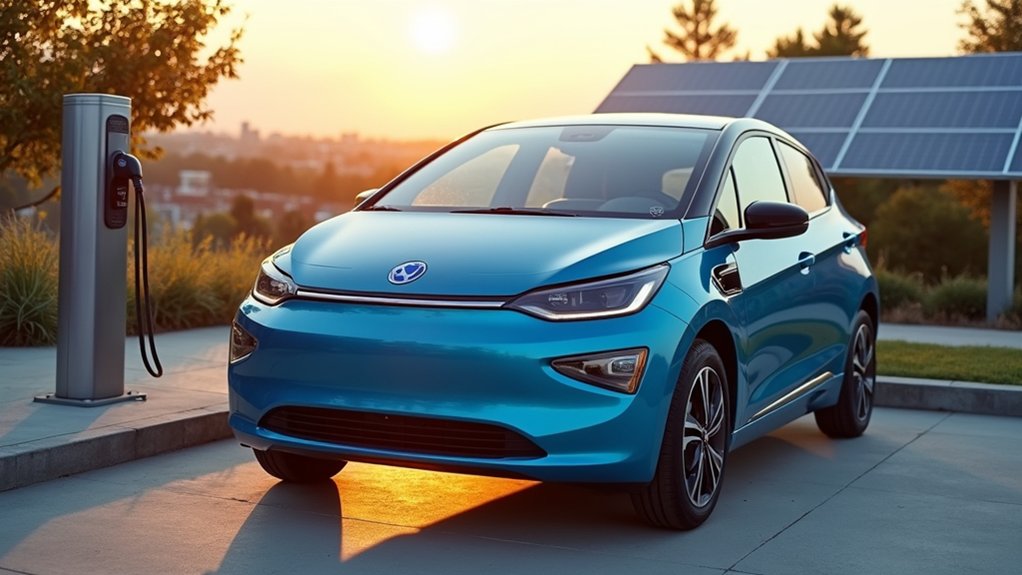
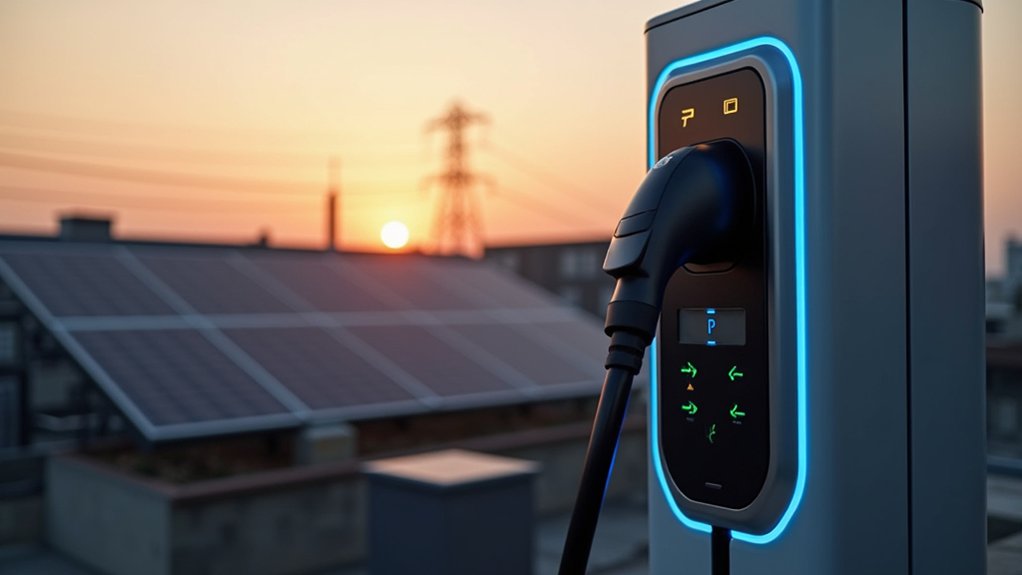
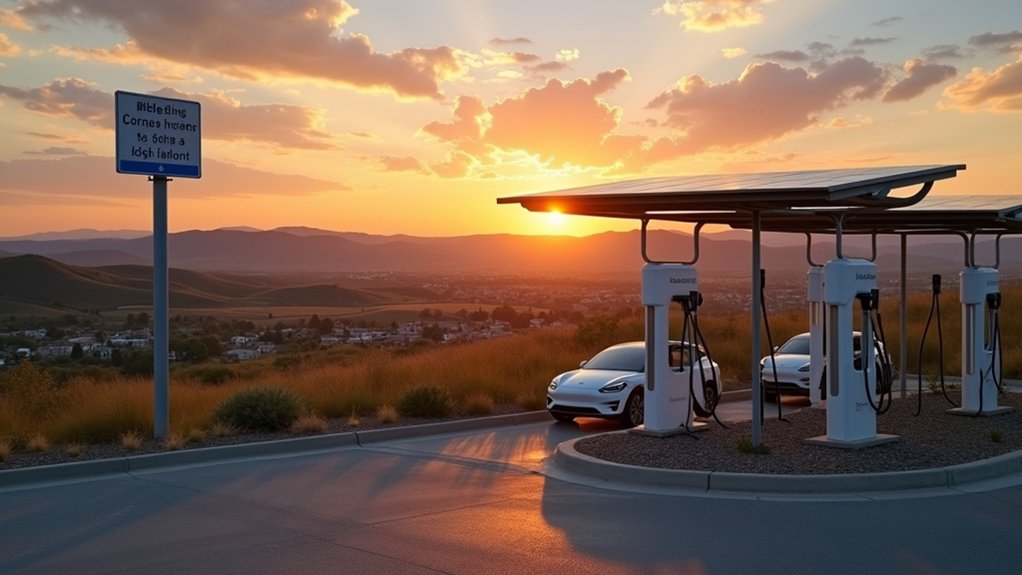
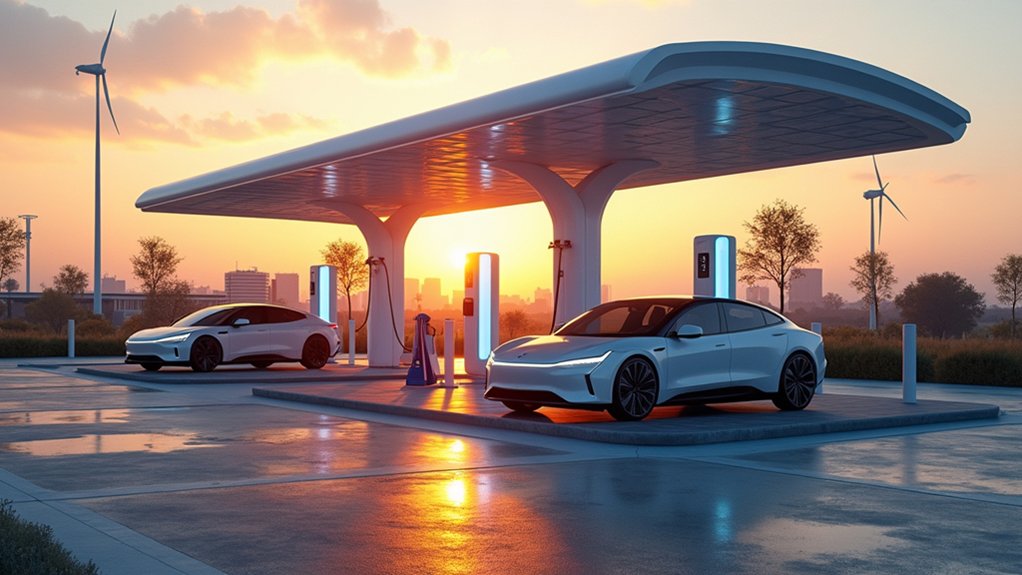

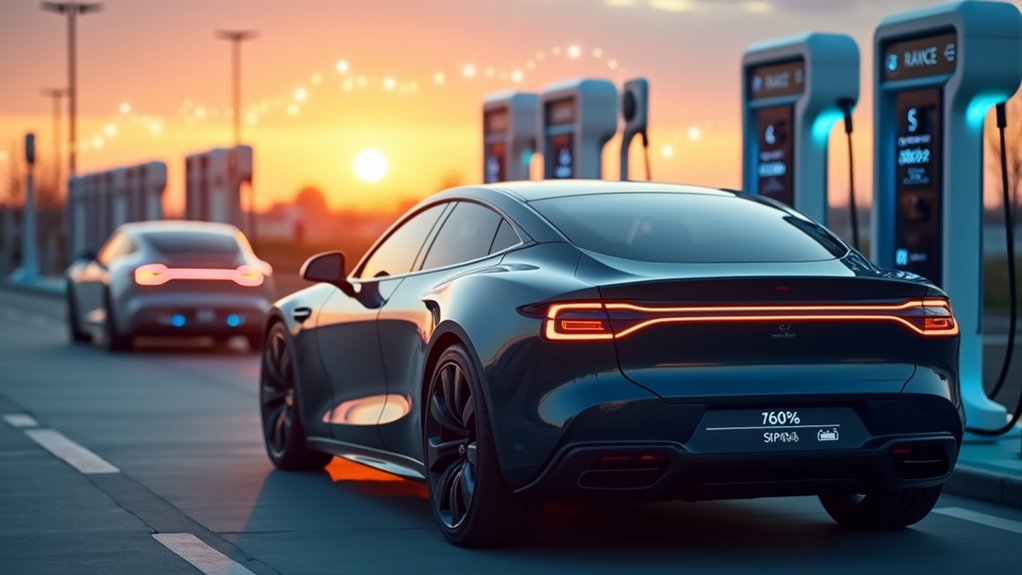




4 comments